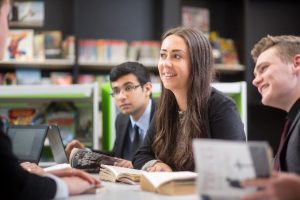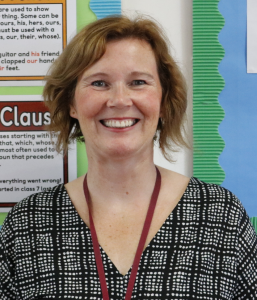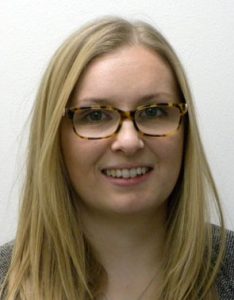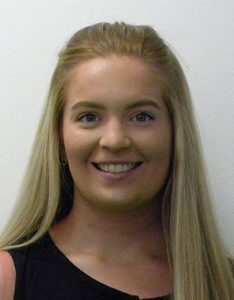 The Bushey St James Trust is fully committed to improving the schools within the Trust and has an excellent track record of this work over recent years. Systems of local and trust wide governance fully support the school improvement agenda and regular scrutiny of key performance indicators (KPIs) at both Local Governing Body and Trust Board level monitor progress over time. This ensures that appropriate interventions and resource capacity are in place to support both rapid and sustainable transformation.
The Bushey St James Trust is fully committed to improving the schools within the Trust and has an excellent track record of this work over recent years. Systems of local and trust wide governance fully support the school improvement agenda and regular scrutiny of key performance indicators (KPIs) at both Local Governing Body and Trust Board level monitor progress over time. This ensures that appropriate interventions and resource capacity are in place to support both rapid and sustainable transformation.
The BSJT has a proven track record of school improvement and the key leaders within the BSJT have first-hand experience of improving schools in both the primary and secondary sector; they themselves have led schools from the spectrum of inadequate to outstanding using proven school improvement models.
Within the BSJT there is a real focus on making teaching as good as it can be and enabling the key school leaders’ to have the time to do this by centralising administrative, finance and HR functions where and when appropriate. Data is used effectively to hold the school leaders within the BSJT to account for performance and as far as possible all unnecessary burdens have been reduced for leaders and teachers by streamlining information management processes across the Trust.
The BSJT adopts a standardised approach to using and sharing information in regard to quality assurance across the schools. This enables the Trust Board to be provided with consistent information so that they can quickly see and make comparisons of the performance of each school, both as a whole and in particular areas (such as the impact of pupil premium funding). It is also easier to identify areas of strengths and weakness within individual schools and, where support needs and can be provided. There is an expectation that every school within the Trust will be both a giver and receiver of support as there are pockets of outstanding practice and areas for development in each school.
All staff are able to learn and share good practice. Teachers across the schools (both primary and secondary) observe and learn from each other to improve the quality of teaching for all pupils. This helps to reduce teacher workload and increases creativity. The Headteachers also work together and support each other to manage change.
All school leaders work hard to ensure that every member of staff within the Trust has a personalised and bespoke professional development plan, irrespective of their position or seniority. Being in a MAT can facilitate greater opportunities for all staff which helps to attract, retain and support the improvement of high quality teachers and Associate Staff.
Over the last two years outstanding staff have been recruited to the Trust and, together with existing outstanding staff, professionally developed along with all colleagues within the Trust.
Regular personalised staff training and collaborations are planned across the Bushey St James Trust to ensure the school improvement journey continues and the very best quality first teaching takes place in all classrooms.
Lead Practitioners, Specialist Leaders in Education and Advanced Lead Teachers lead Professional Learning Groups across the Trust to facilitate the ongoing sharing of best practice. Many of them showcase their practice locally, regionally and also in the national arena.
These staff include the following key leaders of learning:

Sara Ash – Head of Standards, Safeguarding and SEND
Sara is Head of Standards, Safeguarding and SEND across the Bushey St James Trust. Sara has over 25 years teaching experience in schools within Hertfordshire and North London, with a focus on the pastoral care of students. Sara joined Bushey Meads School as an Assistant Headteacher in 2014, moving to Deputy Headteacher in 2017. Since September 2022, Sara has broadened her position across the Trust to provide strategic support in the three key areas of raising standards, safeguarding and supporting students with Special Educational Needs and Disabilities.

Greg Harper – Deputy Headteacher
Greg has been a qualified teacher for ten years, all of which have been spent in the employ of Hartsbourne Primary School. Having joined the school as an NQT, he was appointed subject leader for English in 2009, before being promoted to Assistant Head and SENCo in 2011 and finally Deputy Head in 2013. Greg currently leads English and Music in the school and has been at the forefront of establishing links with Bushey Meads and Little Reddings, as Hartsbourne prepared to join the Bushey St James Trust.

Sean Power – Assistant Headteacher
Sean began his career by working with children who had severe special needs, providing much needed outreach and support to their parents and carers. After fully qualifying as a teacher, he moved into mainstream teaching within a challenging London borough school. Within that school he was promoted to Science and Computing Coordinator and then a year later, head of year. Most recently, after moving to Little Reddings School where he qualified as a SENCo, he is now an Assistant Headteacher.

Kate Hoskins – Lead Practitioner i/c Initial Teacher Training
Kate has over twenty years experience teaching in several schools in Hertfordshire. She started her career as an Art teacher and now teaches four subjects up to A-Level: Art, Graphics, Photography and Media. When Kate joined Bushey Meads she was promoted to Deputy Head of Sixth Form, a post she held for over ten years. During this time she led a team of tutors, and was responsible for the academic and pastoral well being of the sixth form students. Kate is a passionate Art teacher and believes that every student should be given the ability to express themselves and be guided. She encourages students and other staff members to achieve their best standard without fear of failure as it can lead to self discovery and personal well-being. Kate has been a mentor to newly qualified and student teachers and her lessons are often observed by other teachers in the school. Kate regularly contributes to CPD by running workshops and presenting to whole school INSET and Trust conferences.

Niralee Pattni – Senior Advanced Lead Teacher
Niralee began her teaching career in 2015 at Bushey Meads as a Design & Technology NQT. She has taught across KS3, 4 and 5 in a range of disciplines, including food and nutrition and product design, while specialising in textiles.
During her time at Bushey Meads, Niralee has fulfilled the role of KS3 leader for D&T, and has presented strategies to NQT’s across the Herts & Bucks consortium as well as at BMS inset days, on topics such as stretch and challenge and marking and feedback.
She progressed into a Head of House role and has most recently been appointed Advanced Lead Teacher, working as part of the Teaching and Learning team, to help deliver staff training across the school.
Niralee is passionate about D&T and believes that students can foster the same enthusiasm when they are presented with exciting opportunities.

Gary Johnson – English Teacher Key Stage 2-3 and Associate Leader
Gary Johnson has been teaching for nearly ten years, having mainly worked in the primary sector. He has previously worked for Hertfordshire Constabulary and British Transport Police. He was initially employed as a teaching assistant in his previous school and was inspired by the staff and students to join the teaching profession. Gary possesses extensive experience in both KS1 and KS2 and was responsible for planning and overseeing the SATs examinations. Furthermore, in his role as phase leader, he was responsible for the teaching and learning of KS2 in the school. Bushey Meads has provided him with the unique opportunity of teaching both KS2 and KS3. Gary adopts a creative approach in all aspects of his teaching and is passionate about utilising the environment and physical aids in order to create an educational environment whereby pupils can interact with resources to develop understanding of subjects and pertinent issues.

Charlotte Hewitt – D&T Teacher Key Stage 2-3
Charlotte teaches Design and Technology to students across a range of years at both primary and secondary level. Her broad knowledge of the subject and ability to tailor her lessons to a wide range of skill levels has allowed her to get the best out of students across all years of education.

Anna Hogg – BSJT Counsellor
Anna was appointed as the new School Counsellor across the Bushey St James’ Trust in June 2021, having trained in Cardiff and gained experience in working with young people in a variety of settings in the South East region. She offers weekly counselling and individual and group sessions with a therapeutic approach. Working closely with the pastoral teams across the three schools within the Trust she is delighted to be able to help all students across the BSJT reach their full potential and support them in becoming the best versions of themselves.

Keren Crespi – Languages Teacher Key Stage 2-3
Keren is an accomplished languages teacher with 15 years’ experience across private and state settings, teaching Spanish and French up to and including A level. She delivers compelling, interactive lessons with the key aim of engaging all students by creating a positive and productive climate for learning. Keren believes that each individual student should reach their full potential, and supports this through confidence building language exercises and meaningful and inclusive learning opportunities. Keren enjoys creating a sense of shared community as a basis for promoting the school ethos and encouraging learning and achieving together. Keren also mentors PGCE students, empowering & enabling them to develop their full potential and unique styles of teaching. Throughout her career, she has led and participated in many school trips abroad, helping further to increase pupil confidence in the classroom, and embed cultural aspects. Keren is currently teaching Key Stage 3 and is thrilled in addition to be teaching French to Years 5 and 6 at Hartsbourne and Little Reddings Primary Schools, ensuring a core knowledge and smooth transition in the future journey of our young people through languages, into secondary education. As a proud mother of 5, Keren also has a robust experiential understanding of children & young people as they progress through the school system.

Maria Fort – Music Teacher Key Stage 2-3
Maria has experience teaching from Nursery up to A Level. She started as a primary school Class Teacher but her passion to make high-quality music education accessible to all led her to become a Primary Music Specialist, where she worked in inner London schools. Now working as a Music Teacher across the Trust, Maria enjoys teaching students at Little Reddings, Hartsbourne and Bushey Meads. She is always looking for ways to form musical links across the Trust, such as leading the BSJT Choir.

Brandon Kwok – PE Teacher
Brandon began his education journey in 2018 as a Secondary Physical Education Teaching Assistant, a journey which has taken him across both England and East Asia. Brandon is experienced across Key Stage 1 to Key Stage 5 in Physical Education, having worked in various secondary schools and trained in primary schools as a PE Specialist. Since joining Bushey Meads School in September 2022, he has been given the opportunity to teach across both primary and secondary at both Bushey Meads and Little Reddings School, as well as provide learning support to pupils. Brandon hopes that pupils across both Bushey Meads and Little Reddings can benefit from Physical Education and hopes to provide the support that pupils need to become all round individuals.

Tamsin Giannone – Assistant Headteacher across the BSJT
Tamsin has been teaching across London and Hertfordshire for the past 17 years. She joined Little Reddings in 2015 as Assistant Headteacher. Tamsin’s main responsibilities have focussed on curriculum development and teaching and learning. Tamsin is part of the BSJT Teaching and Learning Team working with leaders across both Bushey Meads and Hartsbourne to develop cross-Trust CPD through conferences, workshops and collaborative training. More recently, Tamsin has been working with the teams at Bushey Meads to develop an enhanced reading and writing curriculum to support pupils with SEND. Throughout her career, Tamsin has been passionate about training and supporting teachers to get the most out of their time in the classroom.

Amy Druce – Lead Practitioner for English and Literacy
Amy has been teaching English in Inner London schools since 2005, and joins Bushey Meads as a Lead Practitioner for English. She has held a variety of posts including Head of English, Head of Literacy, and Head of Whole School Professional Learning. Dialogue is at the heart of Amy’s teaching practice. She uses talk in the classroom to make sure students are always ‘thinking hard’, and to empower young people to use their voices in order to thrive – in school, and beyond. She is committed to ongoing reflection of her own classroom craft, and is also passionate about developing others through coaching and feedback.